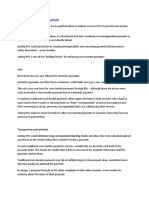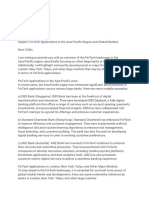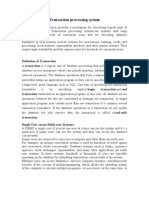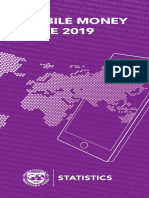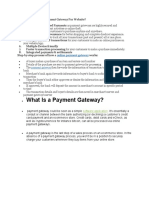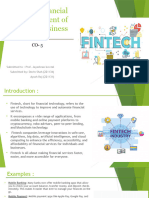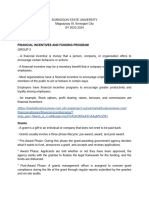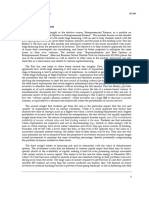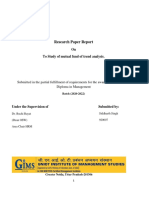0% found this document useful (0 votes)
448 views15 pagesFintech Assignment
This document discusses the impact of fintech. It begins by outlining some of the advantages of fintech, such as improved access to financial resources and optimization of business processes. Potential disadvantages like security risks and issues with accessibility are also examined. The document then assesses the impact of fintech in three areas: how it is transforming traditional financial services through innovations in lending, wealth management, and payments; both the positive and negative societal implications, including issues with racial inequality but also the potential for increased financial inclusion; and fintech's effects on businesses, economies, and individuals. Overall the document provides a balanced look at both the opportunities and challenges presented by the rising influence of fintech.
Uploaded by
Rajanya RahaCopyright
© © All Rights Reserved
We take content rights seriously. If you suspect this is your content, claim it here.
Available Formats
Download as DOCX, PDF, TXT or read online on Scribd
0% found this document useful (0 votes)
448 views15 pagesFintech Assignment
This document discusses the impact of fintech. It begins by outlining some of the advantages of fintech, such as improved access to financial resources and optimization of business processes. Potential disadvantages like security risks and issues with accessibility are also examined. The document then assesses the impact of fintech in three areas: how it is transforming traditional financial services through innovations in lending, wealth management, and payments; both the positive and negative societal implications, including issues with racial inequality but also the potential for increased financial inclusion; and fintech's effects on businesses, economies, and individuals. Overall the document provides a balanced look at both the opportunities and challenges presented by the rising influence of fintech.
Uploaded by
Rajanya RahaCopyright
© © All Rights Reserved
We take content rights seriously. If you suspect this is your content, claim it here.
Available Formats
Download as DOCX, PDF, TXT or read online on Scribd
/ 15

















